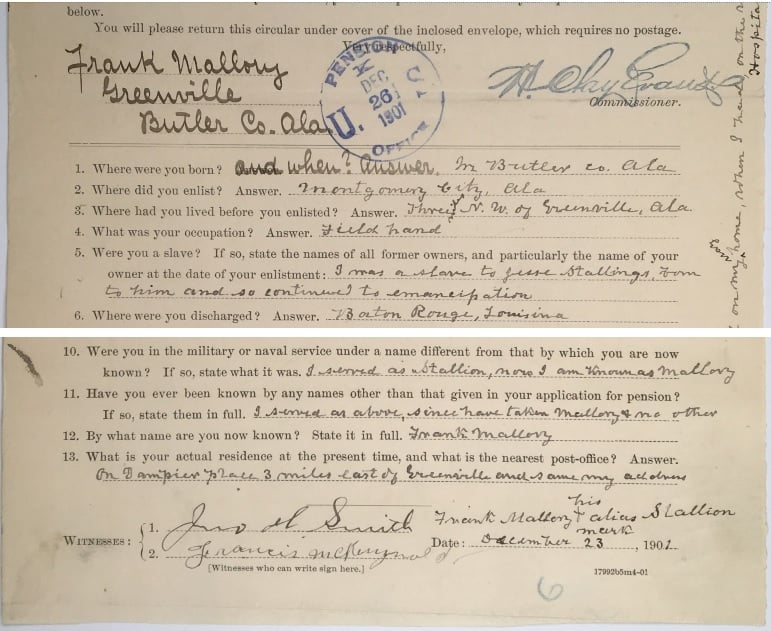Genealogical research into the lives of African Americans before the Civil War can present a unique set of challenges. Many of those who were held in slavery chose their last name after they were emancipated, making them harder to locate in some of the records.
Frank Mallory was a member of the 48th US Colored Troops in the Civil War. His pension file is a great example of the genealogical value that these files can contain.
Frank explained in 1901 that he was known as Frank Mallory at that time. Almost 40 years earlier when he was in the Civil War, however, he enlisted as Frank Stallion. This required an investigation by the pension bureau in order to make sure that he was the same man who was known by this alias.
The investigation, all documented in the pension file, gives the reason for both names. Frank was held in slavery in Alabama by Jesse Stallings. Being unable to sign his own name when enlisted, he said his name was Frank Stallings. The person signing him on heard it as “Stallion,” so he became Frank Stallion during the war. After the war he changed his name to his father’s last name, Mallory.
These key pieces of information can unlock new avenues of research into his family, as well as give insight into how Frank Mallory made his way through the process from slavery to freedom.
His pension application was approved, and the federal government began paying him $12 per month (about $380 today). After he died, the federal government paid his widow $30 per month ($450 today). Like many soldiers in the US Colored Troops, Frank went from being born into slavery and having no real legal status to the government paying him each month until he died.
If you’ve hit a genealogical brick wall in your research, don’t overlook military records– you never know what you’ll find!



